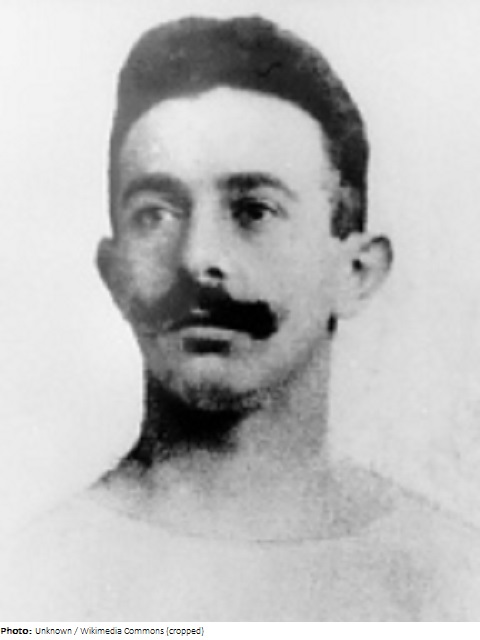Flatow began his athletic career in 1888, appearing mostly as a gymnast, but also as a weightlifter or track and field athlete. His first major international competition was at an Italian gymnastics festival in 1895, followed by the Olympics a year later. In Athens, he won two titles with the German team on the parallel bars and horizontal bar, and added individual medals in the same events. After their return home, most team participants were excluded from the reactionary German Gymnastics Association as they were “involved in a sporting event dedicated to internationalism.” The winning teams were banned from national competitions in Berlin.
A gymnastics teacher since 1890, he started writing books about his sport in the early 20th century. In 1933, Flatow was forced to “voluntarily” end his gymnastics club membership, as he was Jewish. A co-founder of the Jewish Gymnastics Club, he was nevertheless honoured at the 1936 Olympics, where all German Olympic champions were invited. In 1938, he fled the increasingly anti-Semitic Germany to live in the Netherlands, where his cousin and 1896 team mate Gustav Flatow also lived. The German occupation of the Netherlands meant renewed persecution, and on 3 October 1942, he was deported to the Theresienstadt concentration camp – in spite of appeals by the highly placed gymnastics official Christian Busch. He starved to death there before the end of the year. Since 1987, the German Gymnastics Federation awards the Flatow Medal, remembering both Alfred and Gustav, to be awarded for excellent all-around performances.

 Germany
Germany GER
GER GER
GER